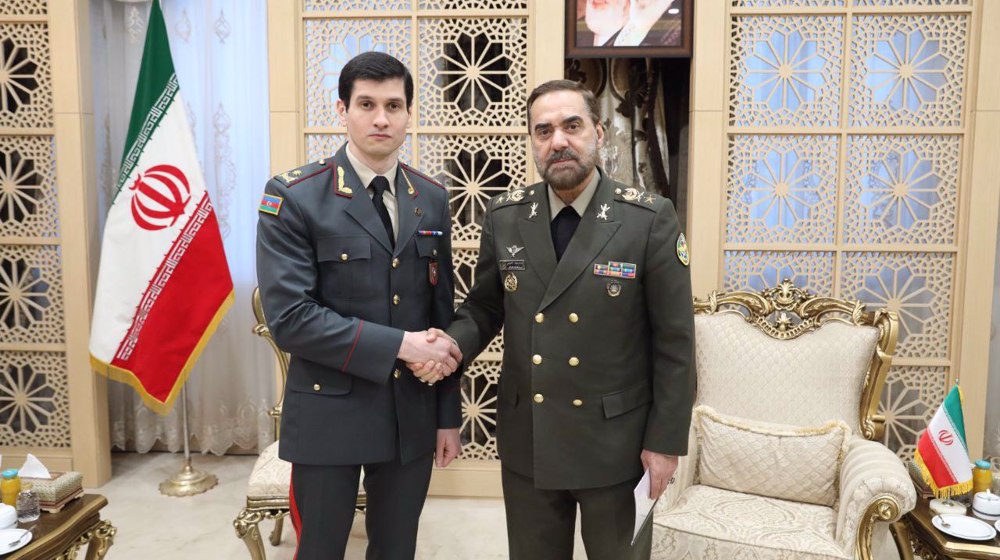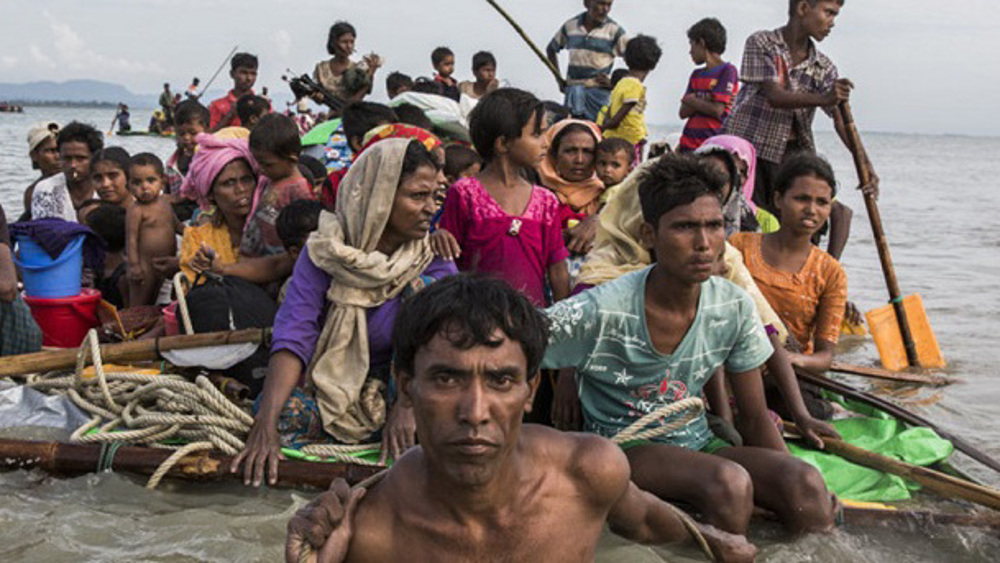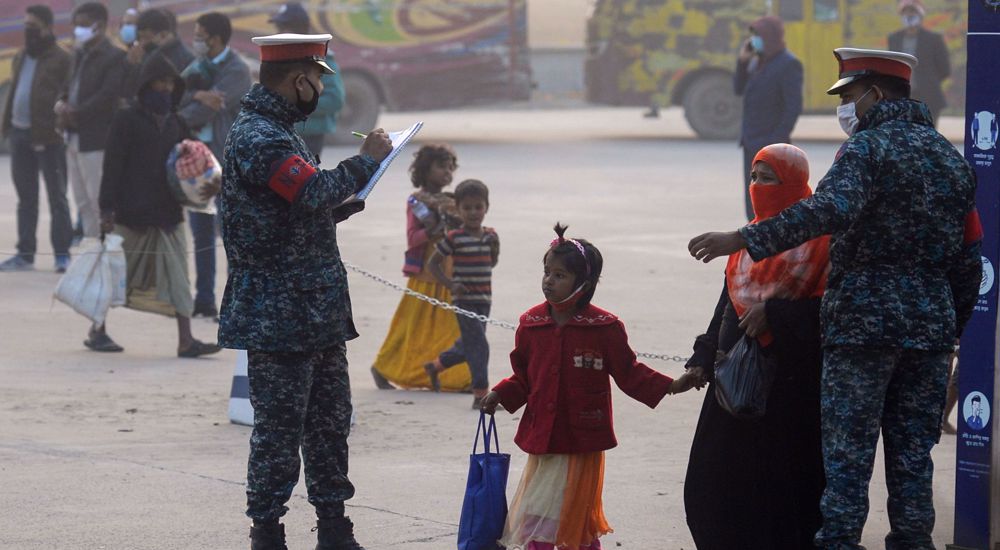Bangladesh refuses to shelter Rohingya stranded in Andaman Sea
Bangladesh says it has “no obligation” to shelter Rohingya Muslim refugees who have been stranded in the Andaman Sea for weeks, as it is in talks with India for their rescue and return.
India’s coast guard found 81 survivors and eight dead on a boat crammed with the refugees adrift in the sea.
The boat set off from southern Bangladesh almost two weeks ago in the hope of reaching Malaysia.
It was carrying 56 women, eight girls, 21 men and five boys.
The people were fleeing the overcrowded camps of Cox’s Bazar, near the border with Myanmar.
Indian officials said on Friday they were “in discussions with the government of Bangladesh to ensure their safe and secure repatriation.”
Bangladeshi Foreign Minister A.K. Abdul Momen said on the same day that Dhaka expected India, or Myanmar, to shelter them.
“They are not Bangladesh nationals and in fact, they are Myanmar nationals.”
“They were found 1,700 km (1,100 miles) away from the Bangladesh maritime territory and therefore, we have no obligation to take them,” said Momen, who is in the United States.
Other countries and organizations, he added, should take care of the refugees.
Citing one Indian official, who declined to be named, Reuters said New Delhi planned to help the refugees with food and water, but it was not planning to take them ashore.
The Cox’s Bazar refugee camp is home to up to 100,000 refugees who have fled a state-sponsored crackdown in Myanmar’s Rakhine state.
About one million Rohingya Muslims fled the crackdown in 2017.
Since early December 2020, the Bangladesh government has been relocating the Rohingya from the overcrowded camps to a remote island.
Human rights groups say the relocation has been “coercive” as the refugees will be facing a lack of adequate medical care and they could be denied freedom of movement, sustainable livelihood or education.
Dhaka denies forced removal of the Rohingya from Cox’s Bazar, saying they were moving to the island voluntarily.
The Rohingya Muslims were forced to leave their homeland amid the military-led crackdown against their community, which according to the United Nations is the most prosecuted minority in the world.
Thousands were killed. Many were raped, tortured, or arrested in the crackdown, perpetrated with “genocidal intent,” according to the UN.
The Muslim community is widely seen as illegal immigrants in Myanmar and denied the right of citizenship. Bangladesh also refuses to grant them citizenship.
US House passes bill targeting charities and pro-Palestine groups
Hezbollah attacks Israeli forces after Lebanese homes blown up
World leaders, states hail ICC arrest warrants for Netanyahu, Gallant
MP: US accountable for possible Israeli 'foolishness' to attack Iraq
VIDEO | Israeli policies strangle Palestinian agriculture, economy
Iran's president offers condolences to Pakistan over terrorist attack
Canada’s Yukon town council at standstill over refusing oath to King Charles
Yemen's Houthi calls for jihad to protect Palestine against Israel













 This makes it easy to access the Press TV website
This makes it easy to access the Press TV website